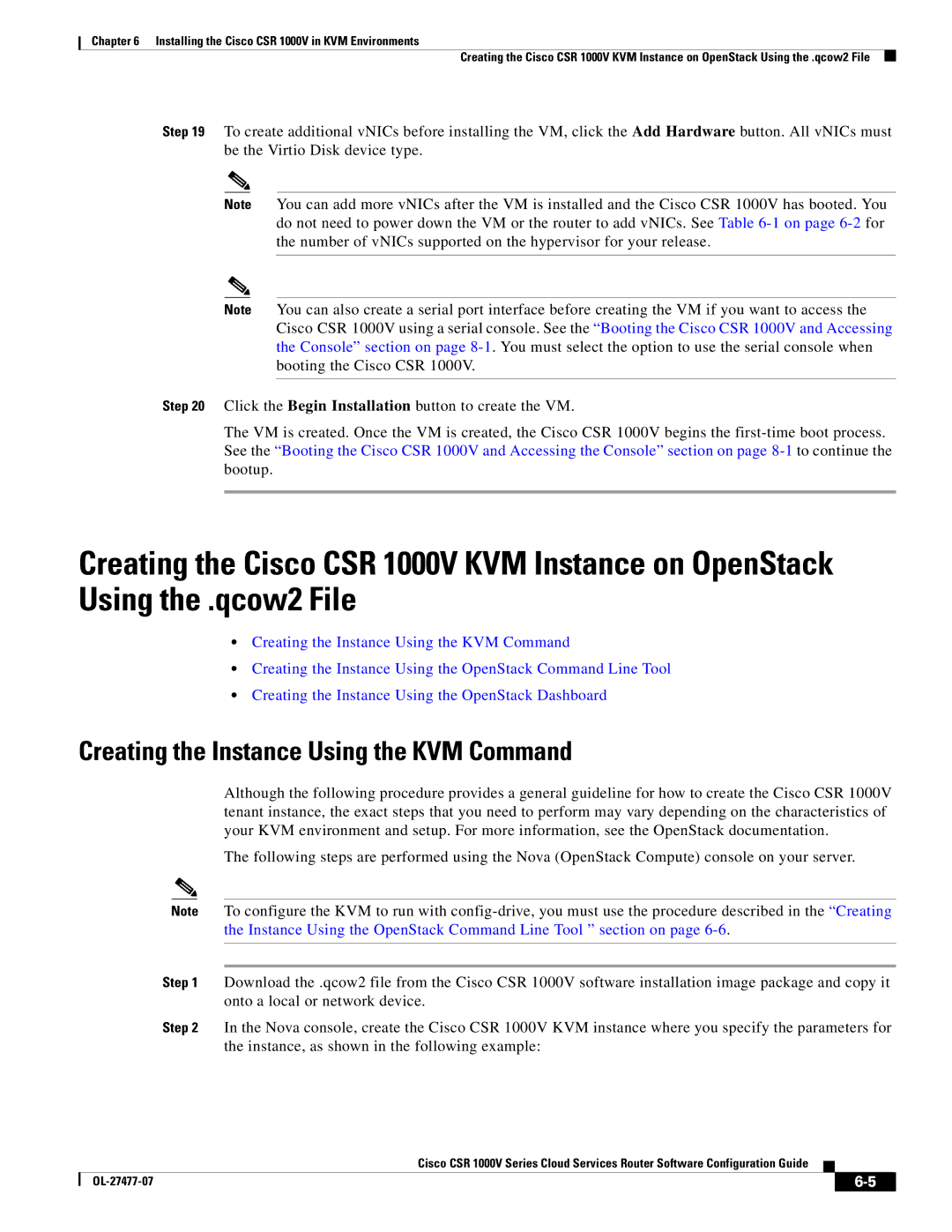
Chapter 6 Installing the Cisco CSR 1000V in KVM Environments
Creating the Cisco CSR 1000V KVM Instance on OpenStack Using the .qcow2 File
Step 19 To create additional vNICs before installing the VM, click the Add Hardware button. All vNICs must be the Virtio Disk device type.
Note You can add more vNICs after the VM is installed and the Cisco CSR 1000V has booted. You do not need to power down the VM or the router to add vNICs. See Table
Note You can also create a serial port interface before creating the VM if you want to access the Cisco CSR 1000V using a serial console. See the “Booting the Cisco CSR 1000V and Accessing the Console” section on page
Step 20 Click the Begin Installation button to create the VM.
The VM is created. Once the VM is created, the Cisco CSR 1000V begins the
Creating the Cisco CSR 1000V KVM Instance on OpenStack Using the .qcow2 File
•Creating the Instance Using the KVM Command
•Creating the Instance Using the OpenStack Command Line Tool
•Creating the Instance Using the OpenStack Dashboard
Creating the Instance Using the KVM Command
Although the following procedure provides a general guideline for how to create the Cisco CSR 1000V tenant instance, the exact steps that you need to perform may vary depending on the characteristics of your KVM environment and setup. For more information, see the OpenStack documentation.
The following steps are performed using the Nova (OpenStack Compute) console on your server.
Note To configure the KVM to run with
Step 1 Download the .qcow2 file from the Cisco CSR 1000V software installation image package and copy it onto a local or network device.
Step 2 In the Nova console, create the Cisco CSR 1000V KVM instance where you specify the parameters for the instance, as shown in the following example:
Cisco CSR 1000V Series Cloud Services Router Software Configuration Guide
|
|
| |
|
|
